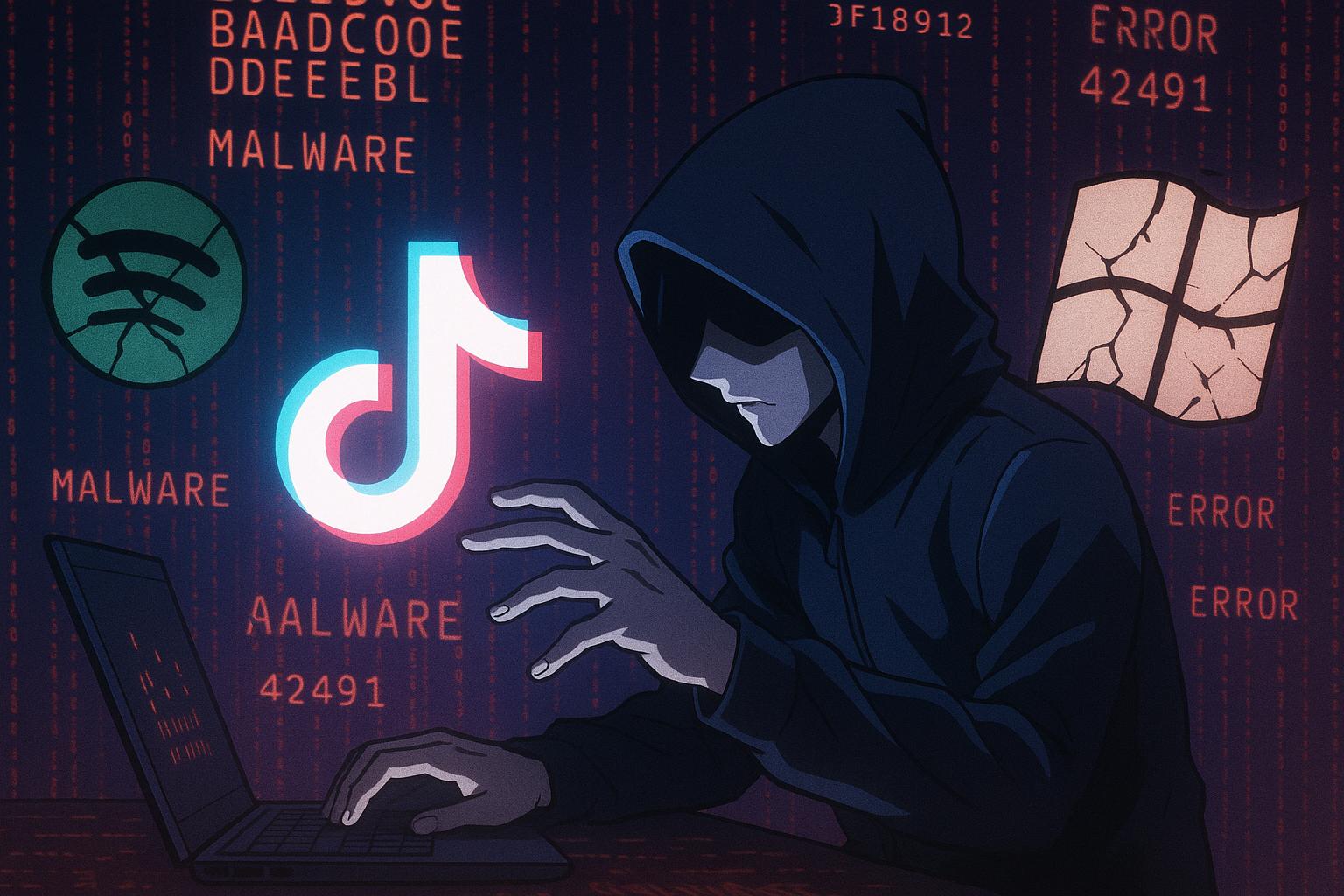In recent days, a disturbing trend has emerged on TikTok, where hackers are leveraging short, visually appealing videos to lure users into downloading malware disguised as offers for free subscriptions to Spotify Premium and Microsoft Windows features. These ten-second clips, often featuring synthetic voices and repeated visual motifs, promise easy access to premium services. However, what they deliver is far more sinister: malware designed to steal sensitive personal information from users' devices.
Cybersecurity experts have pointed out that these videos typically lack malicious code that conventional security tools can detect, making them particularly dangerous. Junestherry Dela Cruz, a cybersecurity researcher at Trend Micro, noted that the deceptive nature of these promotions means that users inadvertently install harmful software. “There is no malicious code present on the platform for security solutions to analyse or block,” he explained. This signifies a new frontier in cybersecurity challenges, where traditional preventative measures fall short against the backdrop of social media's rapid content sharing capabilities.
Reports have emerged of severe consequences for individuals who have followed the instructions in these videos. Victims have recounted experiences of having their hard drives wiped and their accounts hacked as a direct result of downloading the malware advertised. One user lamented, “All my accounts were hacked because of these videos," illustrating the real-world implications of this digital deception. The phenomenon echoes a broader issue of online scams, particularly targeting users of services like Spotify and YouTube, where fraudulent promotions for free trials have become prevalent. Such scams often lead individuals to unwittingly download malware capable of compromising personal credentials and sensitive data.
This trend is compounded by another ongoing issue in the digital landscape—malvertising. Spotify Free users have reported being exposed to malicious advertisements that automatically redirect browsers to malware-laden sites. This problem affects multiple platforms, including both Windows and Mac, and Spotify has acknowledged the ongoing threat while working towards a resolution. As users navigate the platform, they are urged to remain vigilant and ensure that their systems are equipped with reliable security measures.
Further highlighting the pervasiveness of this type of cybercrime, reports indicate that fraudulent promotions have led users to download infamous malware such as Ficker. This malicious software has the capability to capture screenshots, steal passwords, and access personal documents. As users increasingly turn to free versions of popular services, the risk of encountering such scams amplifies. Cybersecurity experts strongly advise downloading apps only from official sources and remaining cautious of offers that seem too good to be true.
While TikTok has taken steps to remove accounts identified as spreading these harmful videos, the company has not disclosed how many users may have fallen victim to this predatory tactic. The video's popularity is troubling; one clip proposing to "boost your Spotify experience instantly" garnered over 500,000 views, showcasing how easily misinformation can spread on social media. Comments under these videos reflect user apprehension, with some questioning the safety of the instructions provided. The ambiguity surrounding these offers only serves to fuel public concern, as users are left to navigate a complex landscape of digital temptation intertwined with risk.
As the battle against cyber threats evolves, it becomes increasingly important for consumers to remain informed and cautious. Cybersecurity experts recommend updating security software regularly and scrutinising offers that promise luxurious features for free. In an age where online scams proliferate, using a discerning eye could be the difference between safe browsing and becoming another victim in a growing catalogue of cybercrime.
Reference Map:
- Paragraph 1 – [1]
- Paragraph 2 – [1], [3], [6]
- Paragraph 3 – [2], [4], [5]
- Paragraph 4 – [3], [5]
- Paragraph 5 – [1], [2], [6]
- Paragraph 6 – [1], [7]
Source: Noah Wire Services
